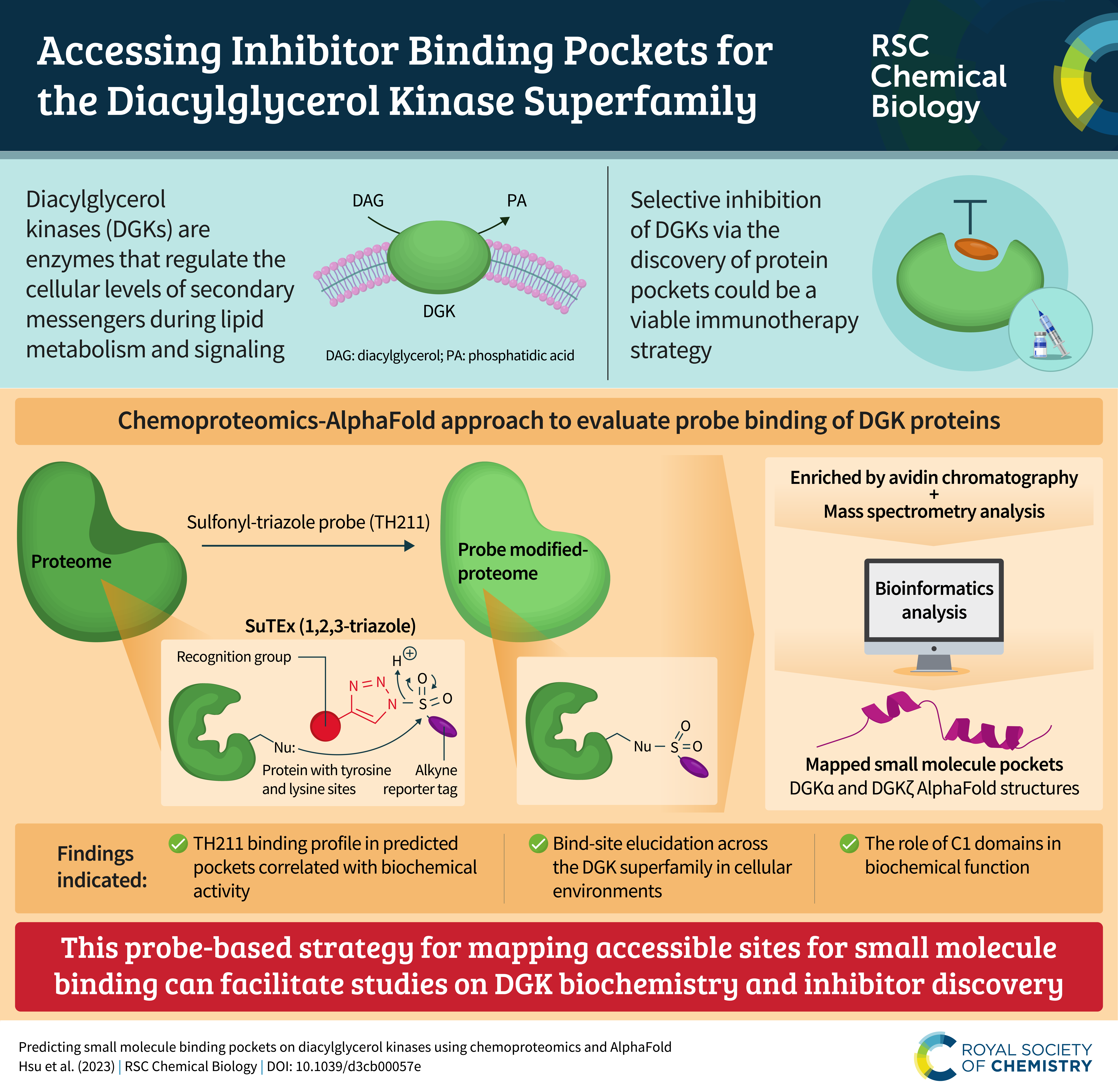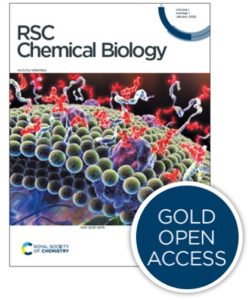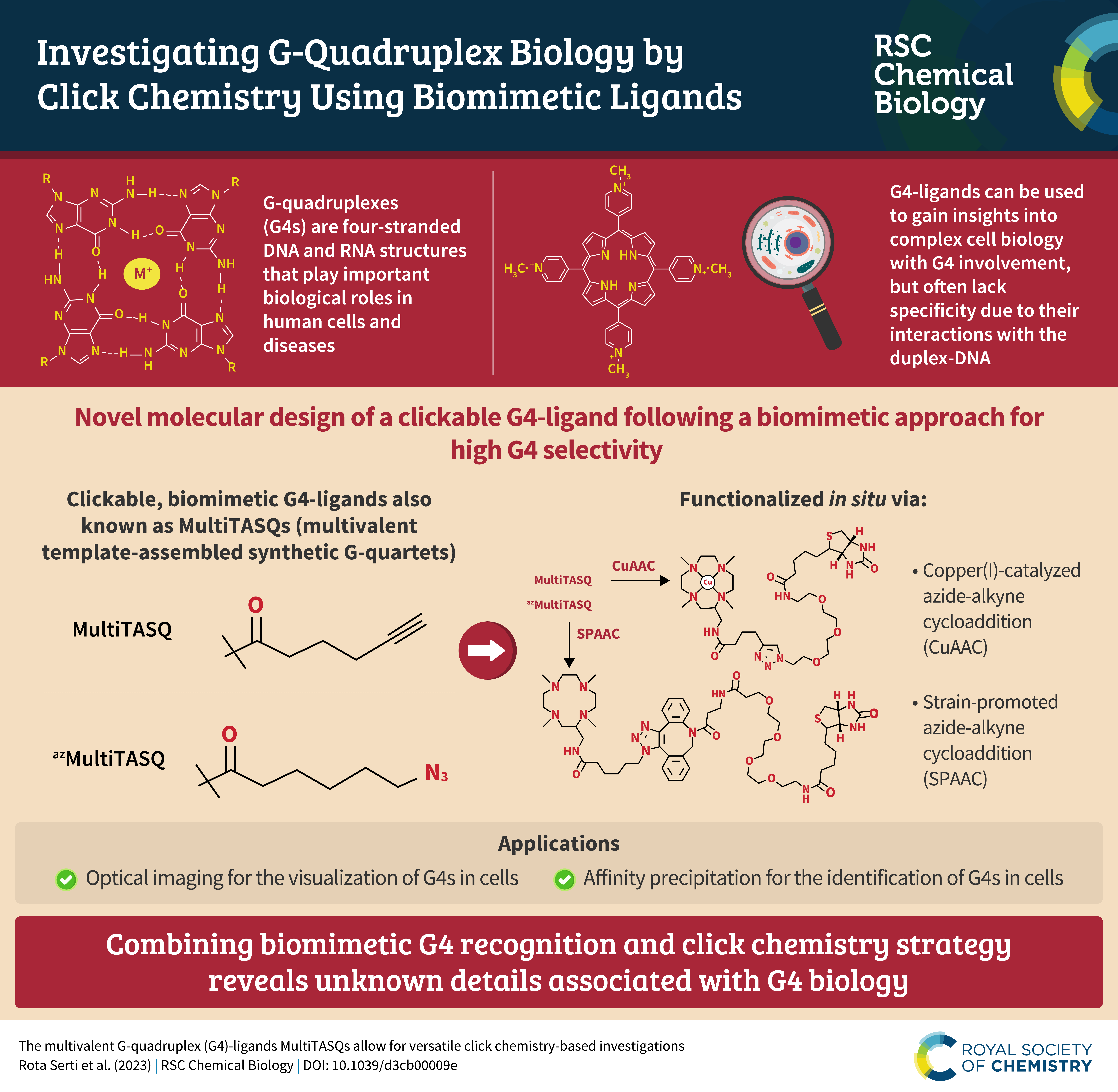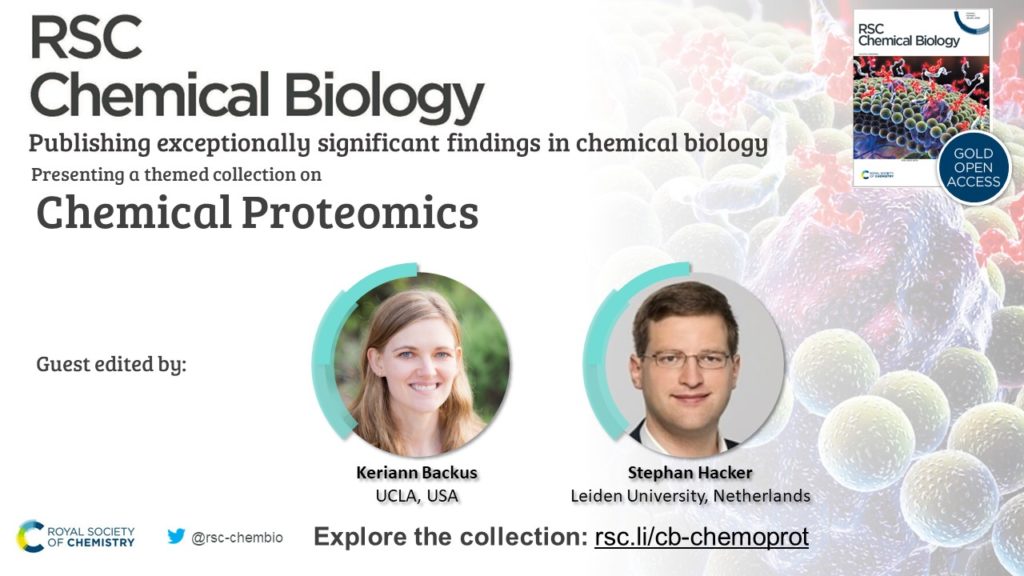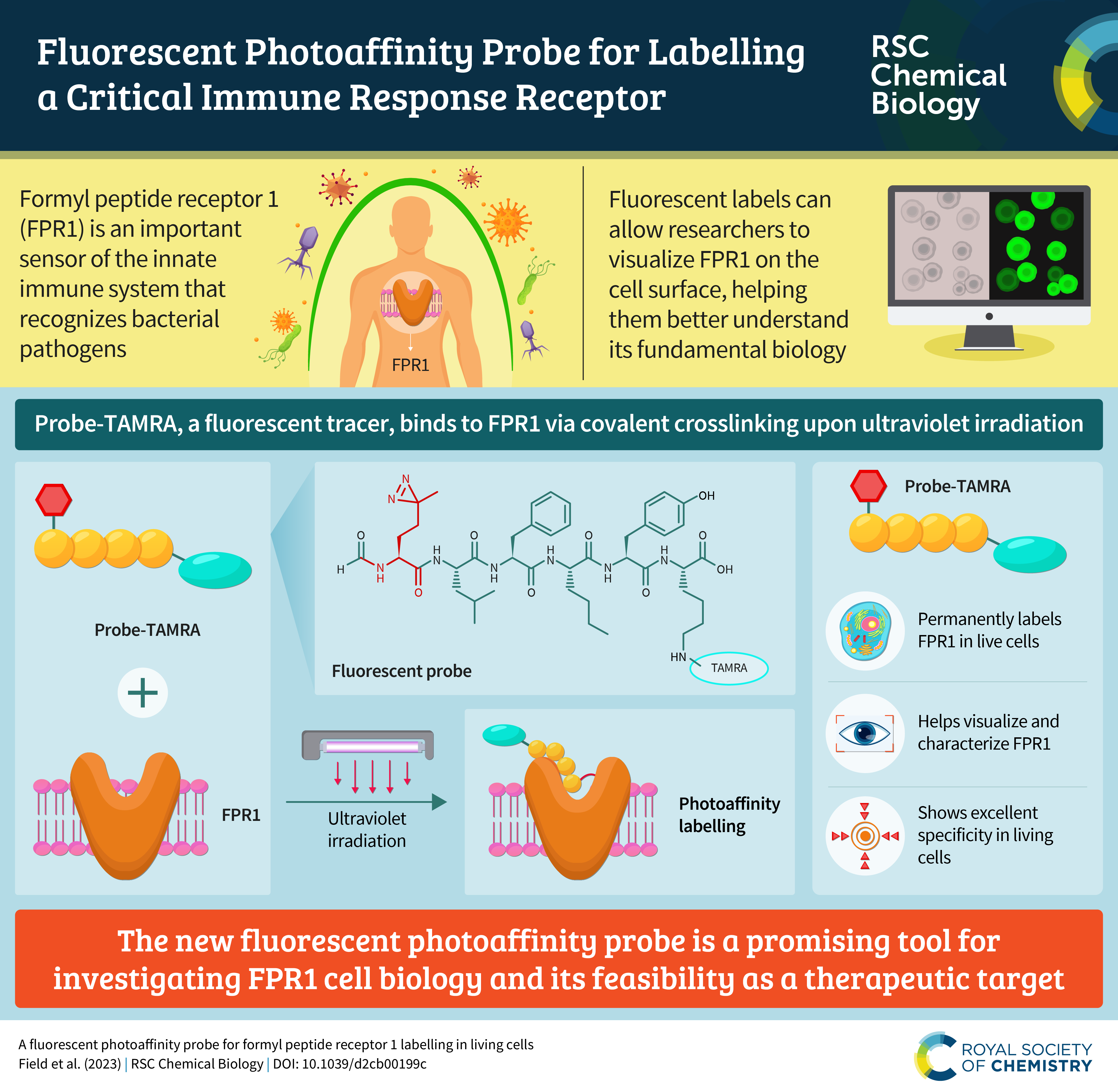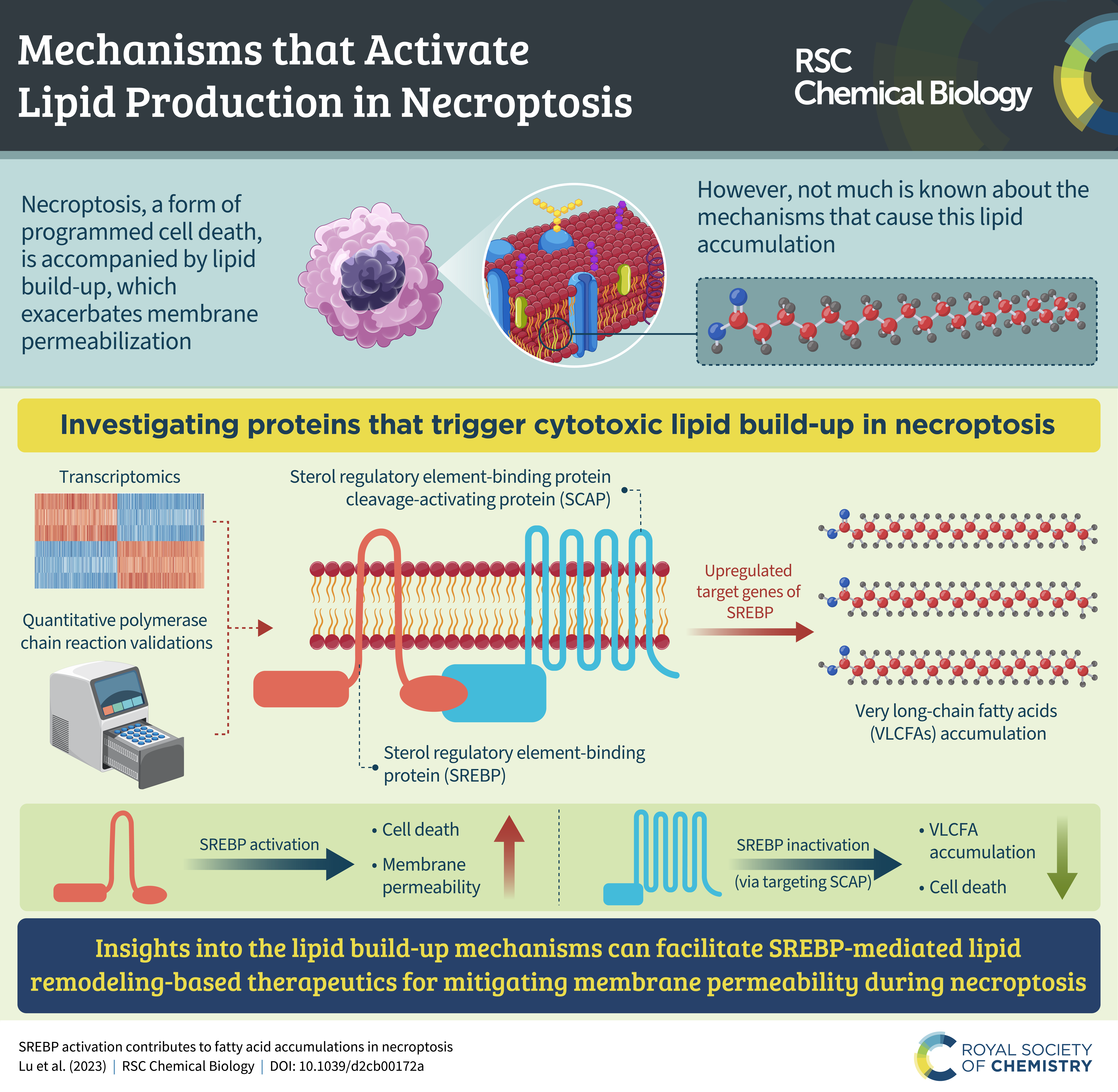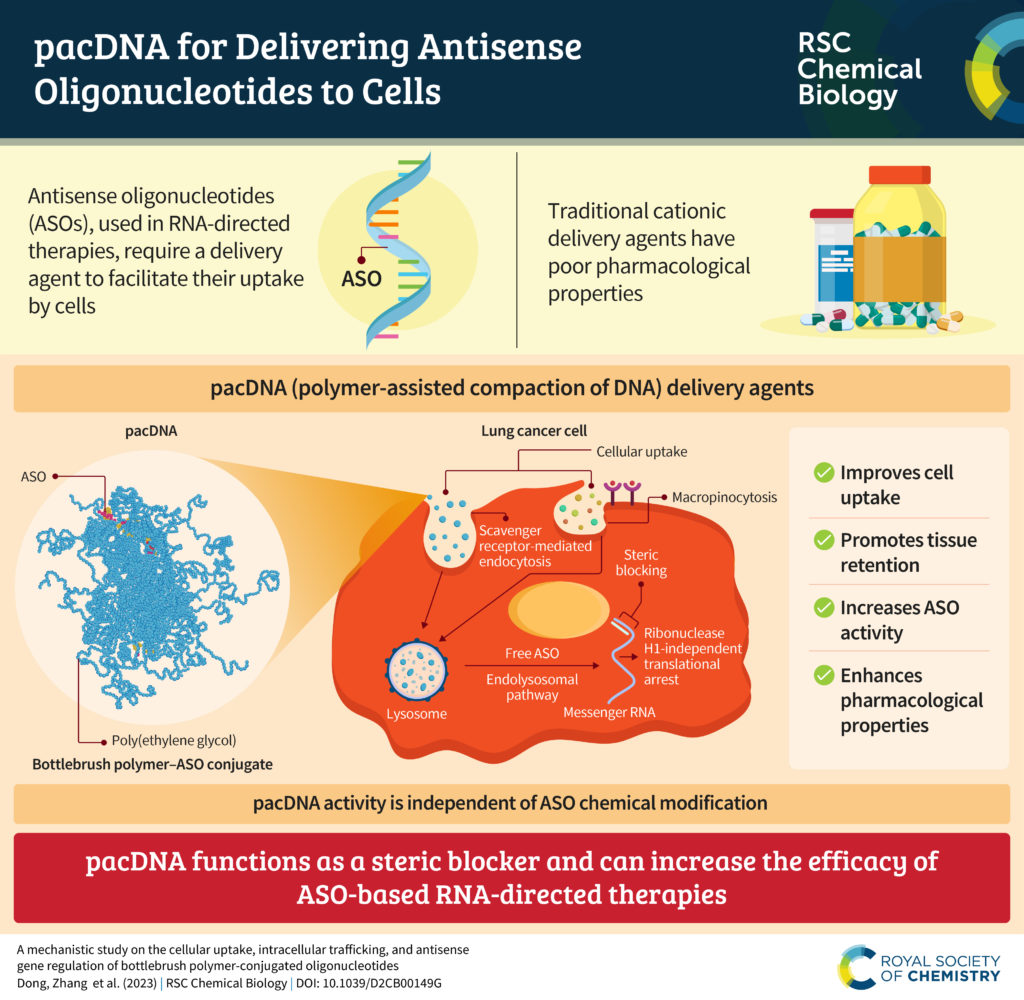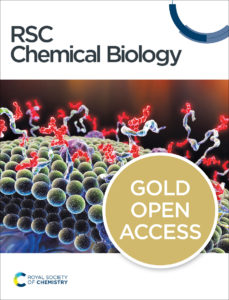About this article
Explore the world of secondary messengers in cell signaling with our latest research on Diacylglycerol (DAG) lipids and their role in cellular communication. DAG kinases (DGK) control cellular DAG levels through phosphorylation, making them crucial in understanding cell signaling pathways. While small molecule inhibitors targeting DGK proteins are valuable tools for investigating DAG signaling, their development has been challenging due to limited information on binding pockets within cells.
Our ground-breaking approach combines chemical proteomics and AlphaFold technology to predict previously undiscovered binding regions for the development of covalent inhibitors.
About RSC Chemical Biology
Led by Hiroaki Suga (University of Tokyo), RSC Chemical Biology is dedicated to publishing and disseminating the most exceptionally significant, breakthrough findings of interest to the chemical biology community. All submissions are handled by our experienced and internationally recognised Associate Editors. For more information on the journal, please visit the journal homepage.
As a gold open access journal, there are no barriers to accessing content and your research article will reach an international audience. Please note that the article processing charges are waived until mid-2022, so the journal is currently free to publish in.
RSC Chemical Biology is now indexed in the Directory of Open Access Journals (DOAJ), PubMed Central, Scopus and Web of Science: Emerging Sources Citation Index. Find out more about the journal and submit your work at rsc.li/rsc-chembio
Royal Society of Chemistry


